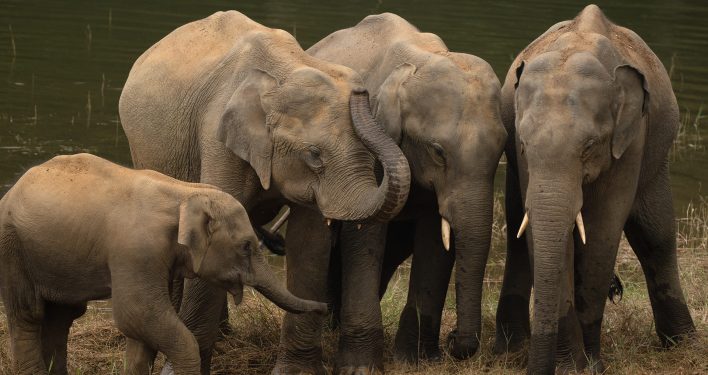The climate crisis manifests differently across different regions. Its impact on varying wildscapes and species can take any form ranging from glacial melt in the snowy Ladakh, to the bleaching of corals along the coasts of India. That being the case, every region would have to ask its own questions, and explore its own unique responses.
The Rainmatter Foundation partnered with the Nature Conservation Foundation (NCF) in 2021 to piece together the necessity of ecosystem conservation and restoration in the climate context. NCF’s approach to conservation – deeply rooted in long-term scientific research, focused on finding place-based solutions by looking at the evolution of landscapes and responding to its changing demands accordingly, and taking into account the needs of local communities that share the landscape with wildlife – forms a crucial part of their conservation practices, and resonated deeply with the kind of thesis we were trying to develop at Rainmatter over the past year-and-a-half. NCF currently works in multiple landscapes in the country and collaborates with national and international organisations on matters related to declining habitats and species, human-wildlife interactions, and the impact of a warming world on ecosystems.
Rooted in ecosystems
It’s hard to point to a start, Ananda says when I’m speaking to him on an unusually warm February morning. NCF has been a long journey of evolving ideas. Dr. M. Ananda Kumar is one of NCFs senior scientists and their current Director, working closely on the Elephant Project. NCF was established in 1996. At the time, it was a group of young scientists out of the Wildlife Institute of India, passionate about certain landscapes and species, and very curious to see where their research would lead. The idea of what NCF has grown to be, the impact that it found the potential for, was realised along the way.
The early founders’ interests led to the formation of the initial programmes – Aparajita Datta, who was working on hornbills started leading the Eastern Himalaya Programme, Charudutt Mishra established the High Altitude Programme, MD Madhusudan, Divya Mudappa and TR Shankar Raman started the Western Ghats Programme, while Rohan Arthur introduced the Oceans and Coasts Programme.
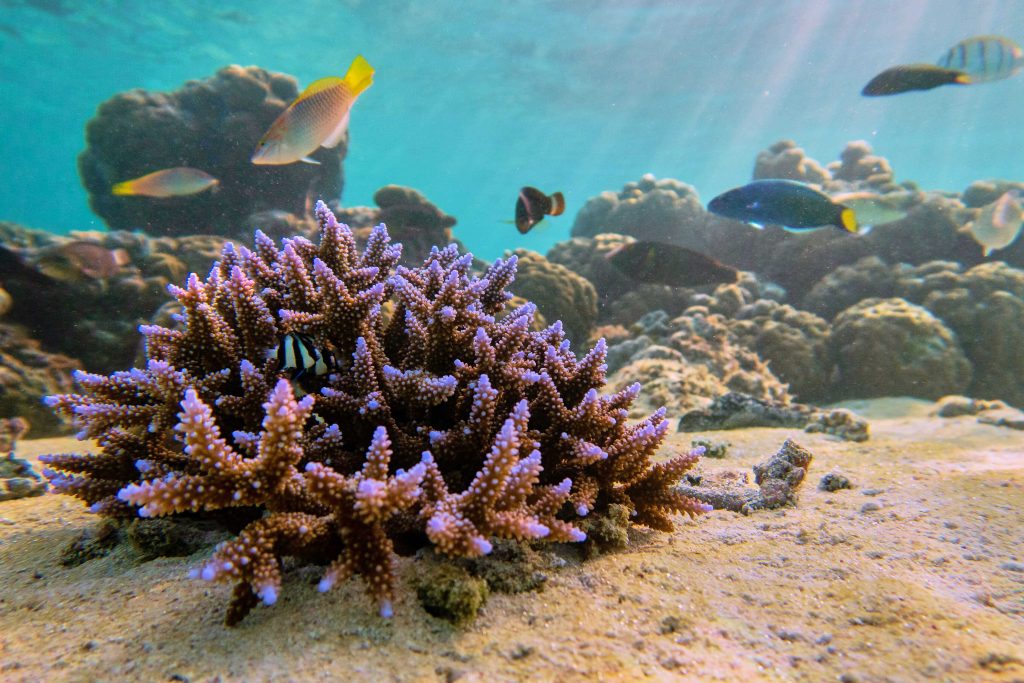
A compact stony coral type with vibrant colours, Acropora plays a vital role in maintaining reef strength. Photo: Mayukh Dey
Although the conservation practices in coastal regions would look very different from those in the high altitudes of the Himalayas, a few common principles underpinned by ethical considerations became a common thread that stitched all of NCF’s efforts. While the Foundation’s work is deeply rooted in science, understanding and building upon traditional knowledge and insights shared by local communities is an important element of all their work. They work towards understanding the life and hardships of communities that share a landscape closely with wildlife, while also helping them learn about NCF’s work. So is a horizontal approach that looks at creative solutions engaging various stakeholders and the larger community and incorporating technology in conservation. Under each programme, a range of ecosystems are protected, conserved, and restored in the region.
Having completed 25 years this past October, NCF’s has been the longest running species and landscape focused conservation programme in a number of these landscapes. As landscapes, environmental threats and conservation challenges evolve over time, the approach to them would need to evolve as well. The organisation also works towards connecting people with nature through outreach and education. To this end, a range of educational materials and projects were introduced under NCF’s Education and Public Engagement (EPE) Programme. A younger generation of conservation scientists and researchers from the interdisciplinary PhD Programme and the Conservation Leadership Programme led by Moushumi Ghosh are furthering conservation research and practices. Building institutional strength to explore non-linear pathways of progress and growth are areas in which the Rainmatter Foundation is supporting NCF.
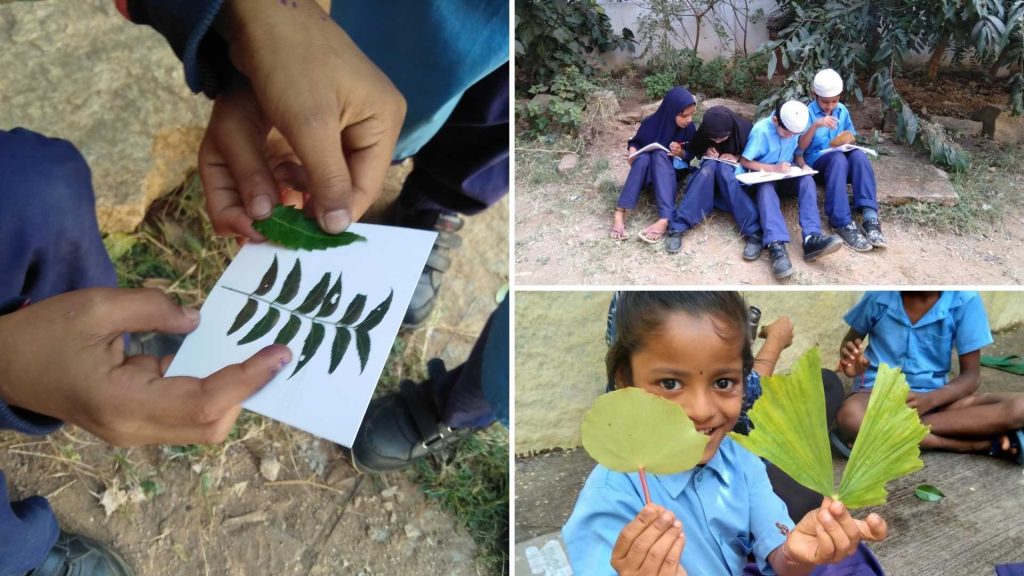
Students finding a connection with nature as a part of the EPE Programme. Photo: NCF
NCF recognises that along with researchers committed to strengthening the scientific stronghold, conservation requires inter-disciplinary action, cooperation and insights. Youngsters are trained to be naturalists, corporates are encouraged to look at ecological impacts of industry decisions, and citizens have started to engage with the urban wilderness. A community that once feared elephants in Valparai has today learned to coexist with them, hornbill hunters in the forests of Arunachal have turned protectors of the forests, school children are picking up binoculars over the weekend to spot their favourite birds and monitor their favourite trees. And all this barely touches the surface of the impact NCF continues to have through their efforts.
NCF’s long-term commitment to landscapes has made it possible for them to not only deepen the scope of their impact, but also form lasting, trust-based relationships with the surrounding communities, forest officials and other stakeholders in the regions where they are present. The team’s tenacity has been a testament to the change they’ve been able to create.
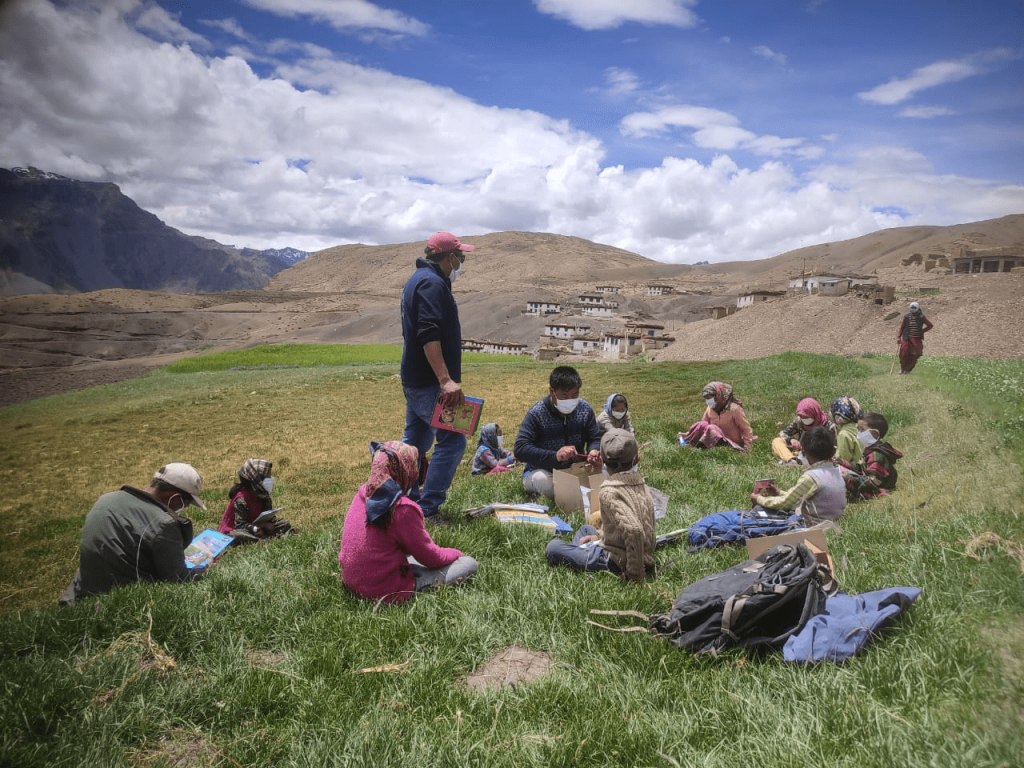
From a nature camp in the High Altitudes of Himachal. Photo: NCF
The way ahead for NCF
No single organisation can solve every conservation challenge in every landscape, says Ananda. NCF aims to work in one area long enough to create a reference landscape, and help other conservationists with the skills and knowledge to learn from and build on that in their chosen areas. NCF’s latest initiative is a step in this direction.
The Rainforest Restoration Project is potentially one of India’s most successful restoration projects. Having started in 2004 on a small barren patch of land, it has been successful in planting over 150 native tree species in degraded forest patches in Valparai. Ecological restoration entails assisting the recovery of an ecosystem that has been degraded, damaged or destroyed. Restoration is an important means of conservation, and it became imperative to have a platform to share learnings, experiences, roadblocks and successes to encourage responsible and appropriate ecological restoration. Based on learnings from the Valparai project, NCF launched the Ecological Restoration Alliance (ERA) with the support of the Rainmatter Foundation and Rohini Nilekani Philanthropies in 2021. Restoration practitioners and ecologists have come together to inform, support and sustain ecological restoration efforts in India under the ERA platform.
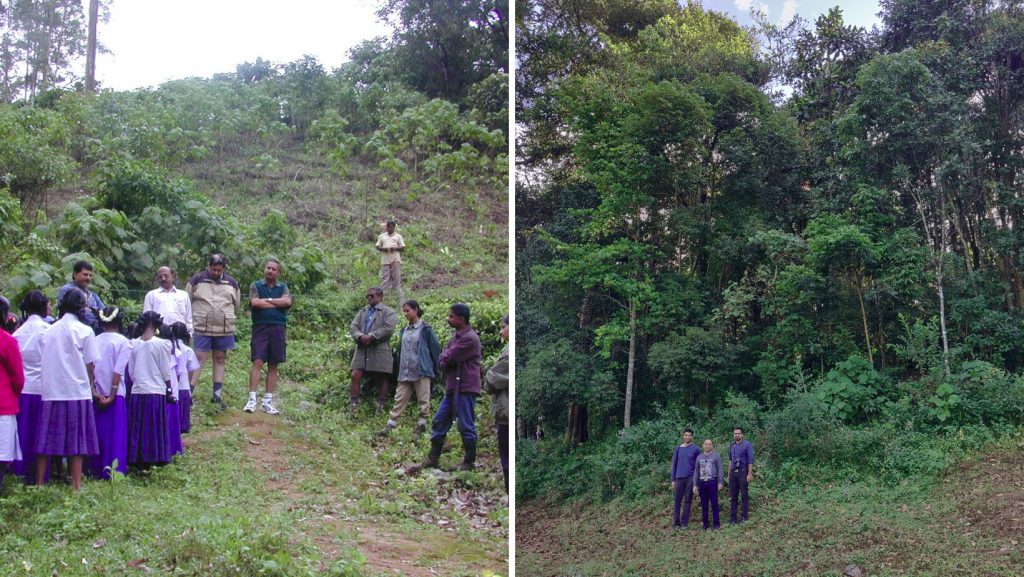
Taken 16 years apart (L: 2004 / R: 2020), documenting NCF’s restoration effort in Valparai. Photo: TR Shankar Raman
NCF’s passion and commitment embodies the spirit of the World Wildlife Day, which falls today (March 3rd). Designed by the United Nations, it is a day to celebrate and bring attention to all the world’s wild animals and plants. NCF understands the complexity and interconnectedness of the many factors that influence better conservation initiatives in the country, and continue to find answers dynamic in space and time by multiplying and strengthening the voices for conservation.

